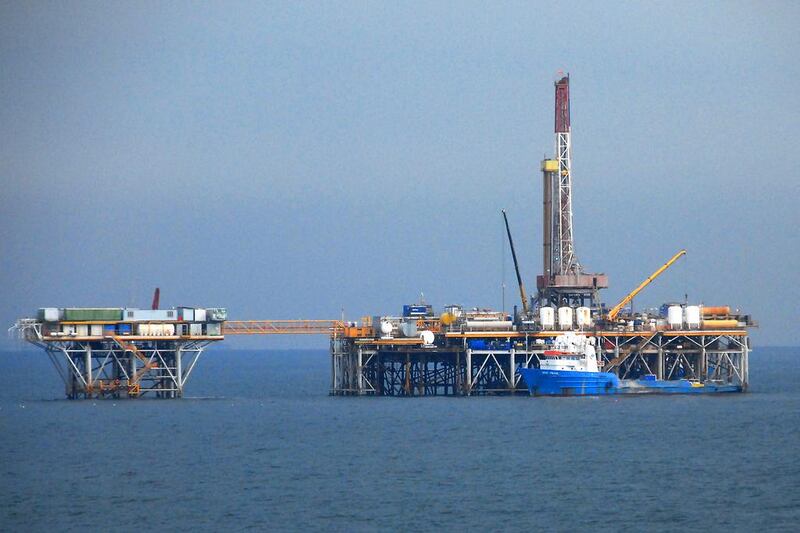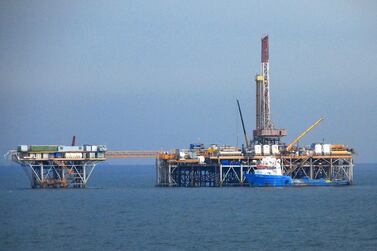BP will sell its concessions in Egypt's Gulf of Suez to UAE energy firm Dragon Oil as part of move to divest more than $10 billion (Dh36.7bn) worth of assets globally over the next two years.
Dragon Oil is a subsidiary of Dubai-based Emirates National Oil Company. It will acquire producing and exploration concessions as well the oil major's interest in the Gulf of Suez Petroleum Company even as BP focuses on Egypt's vast offshore natural gas reserves
“Egypt is a core growth and investment region for BP. In the past four years we have invested around $12bn in Egypt – more than anywhere else in our portfolio – and we plan another $3bn investment over the next two years,” BP chief executive Bob Dudley said in a statement.
The transaction is subject to approval by the Egyptian Ministry of Petroleum and Mineral Resources and is expected to be finalised during the second half of this year.
BP is a big player in the booming hydrocarbons sector in Egypt, which has seen significant traction since the discovery of the Zohr gas field by Italian energy firm Eni in 2016. BP is also a partner on the field.
The energy giant, which has been undertaking development of assets in the West Nile Delta region is expected to reach production of up to 1.4 billion cubic feet per day - equivalent of around 20 per cent of Egypt’s total production.
The transaction marks Dragon Oil’s further push into Egypt, especially the Gulf of Suez region, where it has started drilling on one of two wells.
The explorer, which fully owns the East Zeit Bay offshore concession area, has also looked through its parent to expand into new product portfolios in the country.
Dragon Oil currently operates concessions in Turkmenistan, Algeria, Egypt, Afghanistan, Tunisia and the Philippines. The company had earmarked $13bn to be invested over 10 years with $500 million to be spent in this year alone.
Egypt has become a hotspot for upstream investment activity following the uptick in gas exploration and production. Exxon Mobil became the latest major to enter the country following the conclusion of a successful licensing round last year.
Earlier this year Egypt's petroleum ministry tendered 10 blocks offshore the Red Sea as it looks to duplicate its successes in the Eastern Mediterranean, which led to a gas bonanza ending the country’s imports for the fuel.








